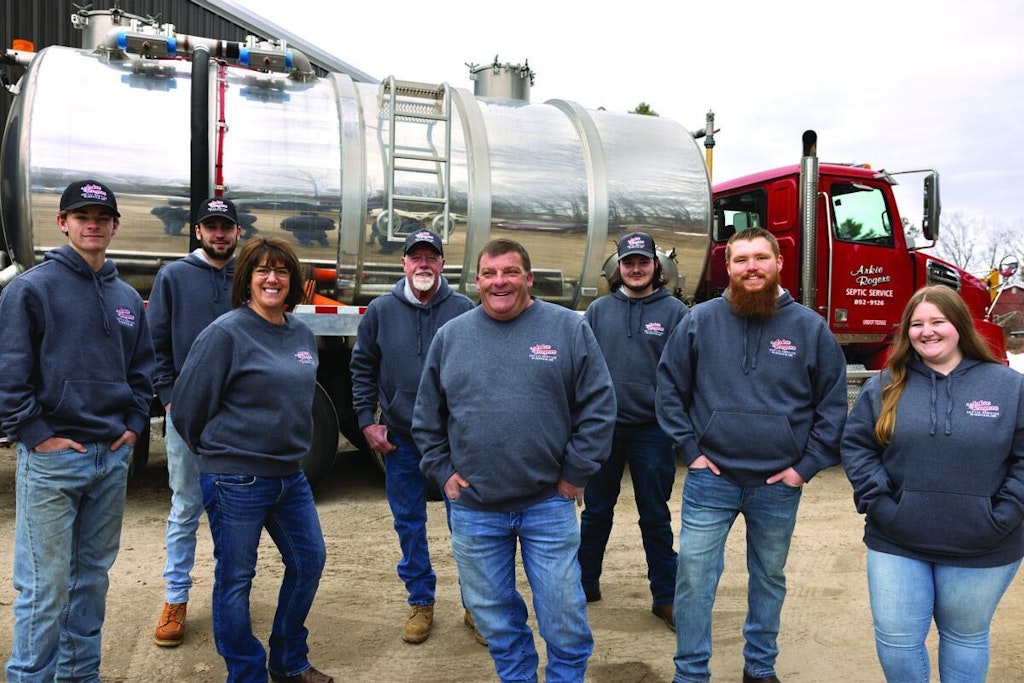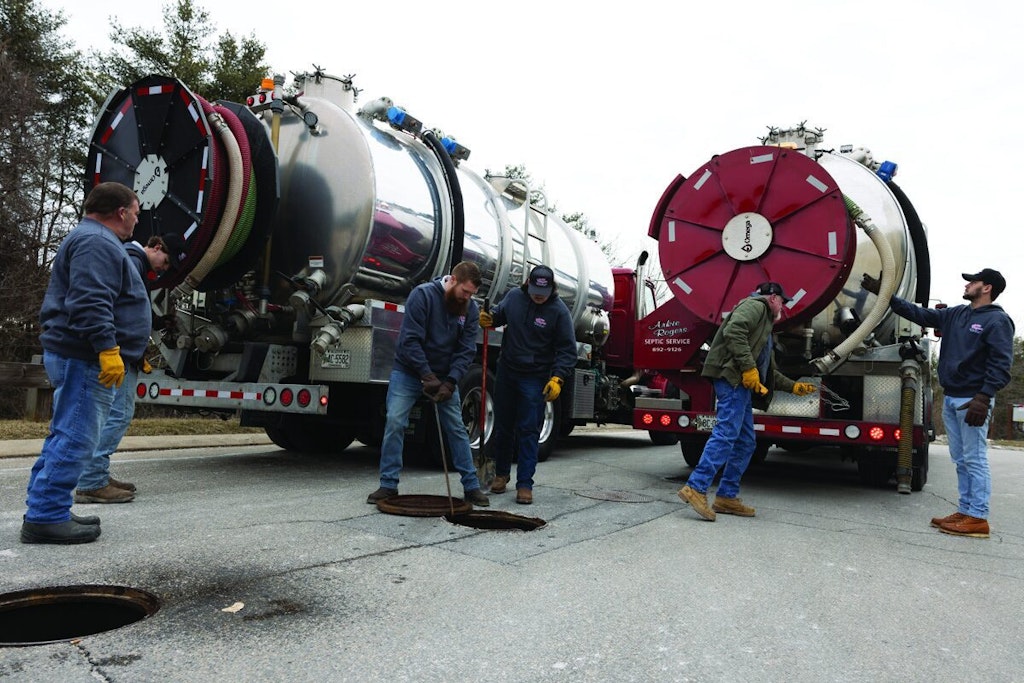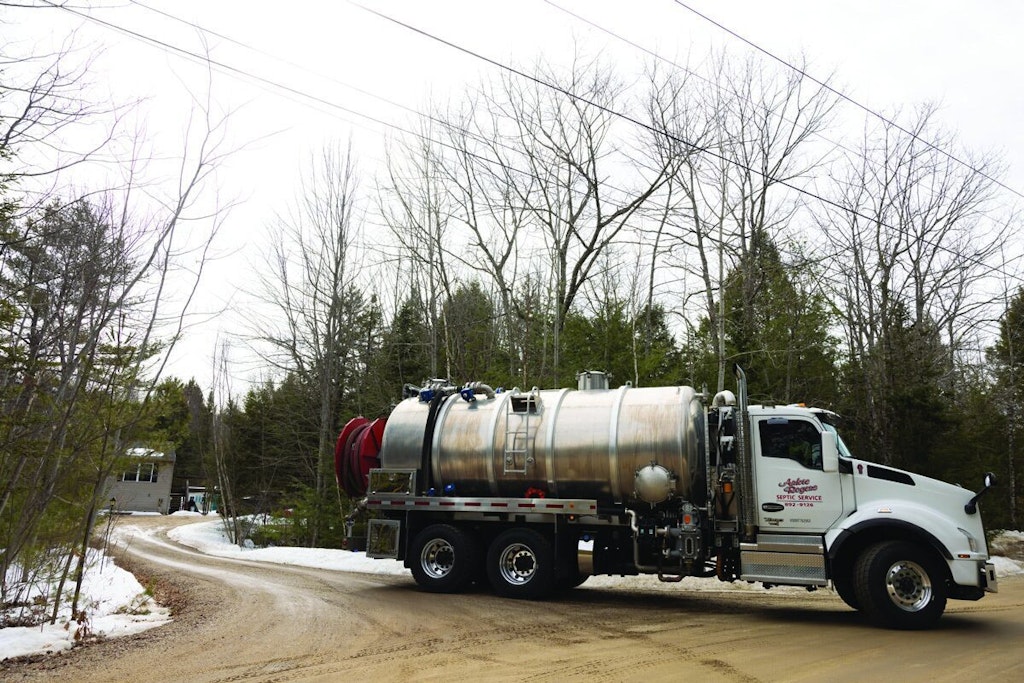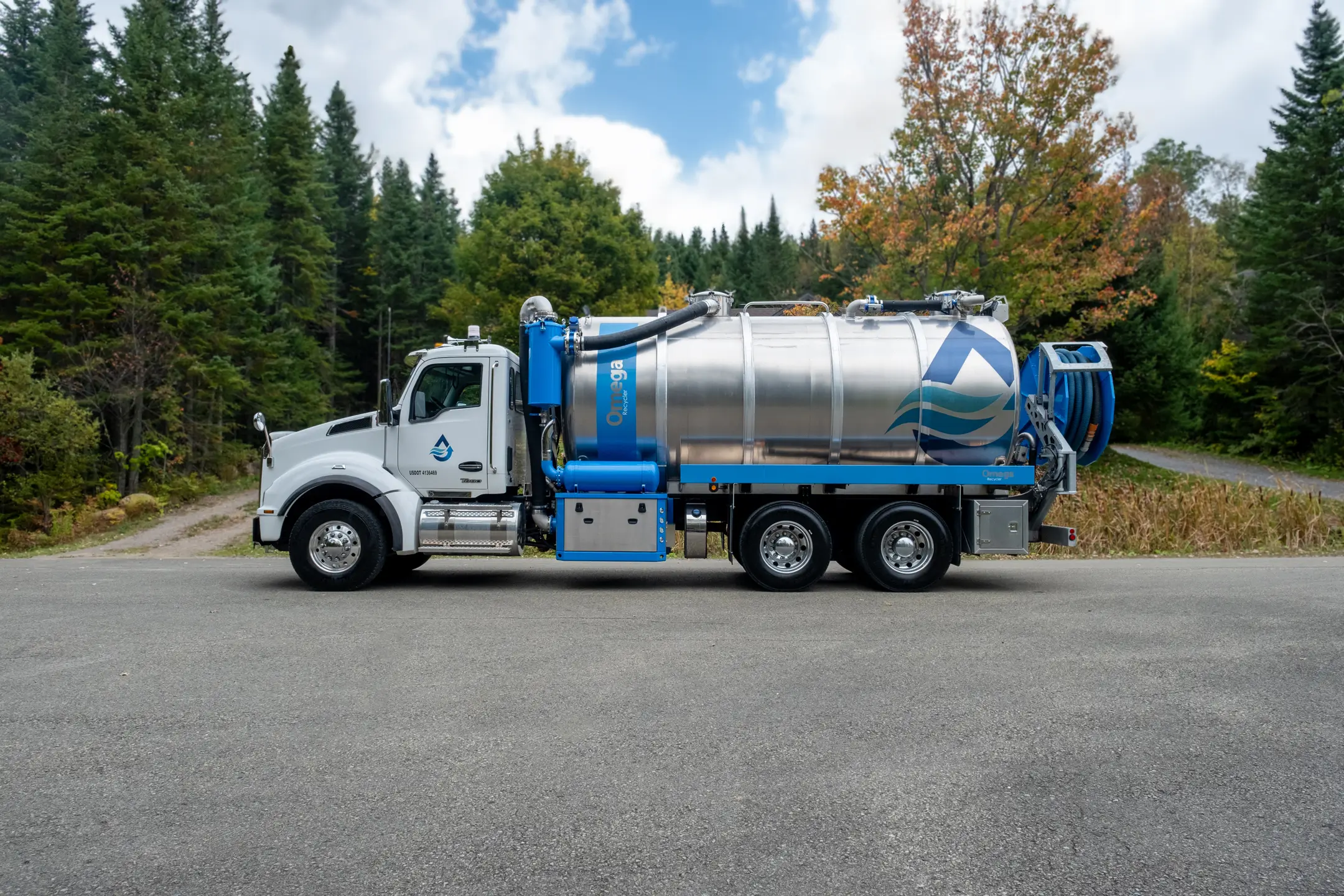Growing new business
However, much of the region, including the town of Windham, continues to be served by septic systems. With population growth in the region driving new business, the company began to scale back its secondary businesses of excavation and commercial pumping to concentrate primarily on residential septic pumping and minor system repairs, including baffles, risers, covers and filters.
Today, the company employs nine people, including office staff. Rogers, now 53, runs the business after his father and mother began to step back in 2019.
Rogers remains a working executive. “I’m available to do whatever I have to do to keep the business going from day to day,” he says. “If someone calls in sick, I’ll be driving the septic truck that day.”
His son, Sam, has been working with the business for the last three years of high school on weekends and during summer vacations. “He’s going to college to take some business courses, but we hope to have him back with the business when he graduates,” Rogers says.



